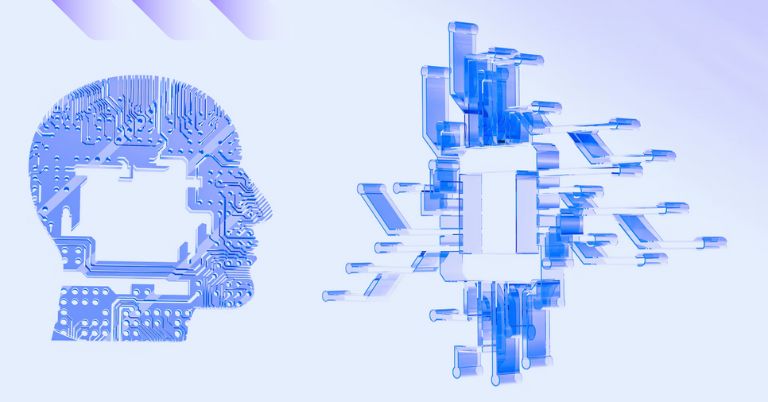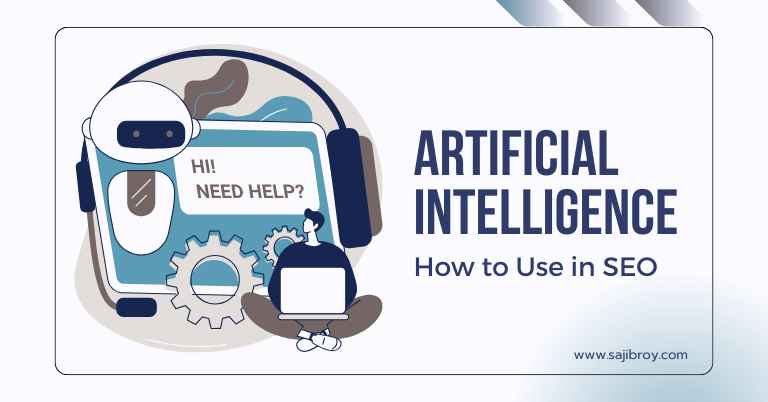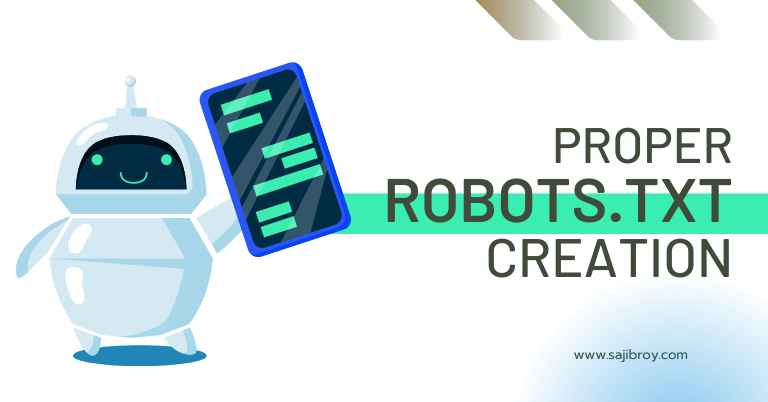Quantum computing will revolutionize ai applications, enhancing their capabilities exponentially. We will explore the profound impact quantum computing will have on the field of artificial intelligence, enabling faster computations, improved algorithms, and breakthroughs in machine learning.
We will delve into the potential benefits and challenges of integrating quantum computing with ai systems and discuss the various industries that will be impacted by this fusion. By understanding the intersection of quantum computing and artificial intelligence, we can anticipate the future advancements and opportunities that await ai applications in diverse sectors such as healthcare, finance, and cybersecurity.
Let's See the Topic Overview
Understanding The Intersection Of Quantum Computing And Ai
Quantum computing and artificial intelligence (ai) are two cutting-edge technologies that have the potential to revolutionize various industries. As these fields continue to advance, the intersection of quantum computing and ai holds immense promise for the future. In this section, we will explore the growing significance of quantum computing in the field of ai, and delve into the potential it holds to transform ai applications.
The Growing Significance Of Quantum Computing In The Field Of Ai:
- Quantum computing is gaining traction as a powerful technology that can potentially overcome the limitations of classical computing, allowing for faster and more complex calculations.
- Ai algorithms often deal with vast amounts of data and complex computations, making them ideal candidates for optimization using quantum computing techniques.
- Quantum computing has the potential to significantly enhance ai applications by solving optimization problems more efficiently, improving pattern recognition and machine learning algorithms, and enabling the development of new ai models.
- Quantum algorithms such as the quantum support vector machine (qsvm), quantum neural networks (qnn), and quantum clustering algorithms have been proposed as potential tools for enhancing ai applications.
- The fusion of quantum computing and ai could unlock new possibilities in fields such as drug discovery, weather forecasting, financial modeling, and optimizing complex logistics operations.
Exploring The Potential Of Quantum Computing To Transform Ai Applications:
- Quantum machine learning algorithms have shown promise in improving the efficiency of training models and speeding up inference processes.
- Quantum computing can help address key challenges faced by classical ai algorithms, such as exponential time complexity and limited scalability.
- Quantum-inspired algorithms, which simulate quantum computations on classical hardware, provide a bridge to leverage some of the benefits of quantum computing until more powerful quantum devices become widely available.
- Quantum computing could revolutionize ai applications in fields like natural language processing, image and speech recognition, recommendation systems, and generative modeling.
Harnessing The Power Of Quantum Mechanics For Ai Advancements:
- Quantum mechanics provides a unique framework for solving complex problems by leveraging principles such as superposition and entanglement.
- Superposition allows quantum algorithms to operate on multiple states simultaneously, enabling parallelism in computations and potentially speeding up ai processes.
- Entanglement enables the correlation of quantum states, which can lead to more efficient and accurate machine learning algorithms.
- Quantum computing hardware, such as qubits, are susceptible to errors due to factors like decoherence and noise. Overcoming these challenges is crucial for practical implementation in ai applications.
- Ongoing research and development in both quantum computing and ai are driving advancements that could lead to breakthroughs in the near future.
The intersection of quantum computing and ai holds tremendous potential for transforming various industries and shaping the future of technology. As these fields continue to evolve, harnessing the power of quantum mechanics to enhance ai applications could unlock new possibilities and drive innovation across multiple domains.
Stay tuned to witness the exciting developments that lie ahead in this fascinating realm of science and technology.
Quantum Computing: A Game-Changer For Ai
Quantum computing is set to revolutionize the field of artificial intelligence (ai) by unlocking new possibilities and pushing the boundaries of what can be achieved. With its ability to process vast amounts of data simultaneously and overcome traditional computational limitations, quantum computing has the potential to enhance ai algorithms and accelerate machine learning capabilities.
In this section, we will delve into three key aspects of quantum computing’s impact on ai: unleashing the potential of quantum parallelism in ai algorithms, overcoming computational limitations, and enhancing machine learning capabilities through quantum algorithms. Let’s explore each of these points in detail.
Unleashing The Potential Of Quantum Parallelism In Ai Algorithms
- Quantum parallelism allows quantum computers to explore multiple solutions simultaneously, exponentially increasing the computational power compared to classical computers.
- In ai, quantum parallelism can be leveraged to optimize complex algorithms and solve problems that are currently intractable due to computational limitations.
- By harnessing the power of quantum parallelism, ai algorithms can perform complex calculations and data analysis at a much faster pace, leading to more accurate predictions and insights.
Overcoming Computational Limitations With Quantum Computing
- Classical computers face limitations when processing highly complex algorithms and large datasets, often leading to time-consuming computations.
- Quantum computing offers a solution by utilizing qubits, the basic units of quantum information, to perform calculations in parallel and tackle computationally intensive tasks more efficiently.
- With the ability to handle massive amounts of data in parallel, quantum computers can significantly speed up ai processes, enabling breakthroughs in areas such as natural language processing, computer vision, and data analysis.
Enhancing Machine Learning Capabilities Through Quantum Algorithms
- Machine learning algorithms lie at the heart of ai, enabling systems to learn from data and make intelligent predictions or decisions.
- Quantum algorithms, such as quantum support vector machines and quantum neural networks, have the potential to significantly enhance the performance of machine learning models.
- These quantum algorithms leverage the unique properties of quantum computing, such as superposition and entanglement, to process and analyze data more efficiently and uncover patterns that may go unnoticed with traditional algorithms.
Quantum computing represents a game-changing opportunity for ai. By unleashing the power of quantum parallelism in ai algorithms, overcoming computational limitations, and enhancing machine learning capabilities through quantum algorithms, we can expect significant advancements in the field of artificial intelligence.
As quantum computing continues to evolve, it will undoubtedly reshape the landscape of ai and unlock new frontiers of innovation and discovery.
Applications Of Quantum Computing In Ai
Quantum computing has the potential to revolutionize artificial intelligence (ai) applications, unlocking new capabilities and solving complex problems that are currently beyond the reach of traditional computing methods. In this section, we will explore the various ways in which quantum computing can impact ai and drive innovation.
Optimizing Complex Optimization Problems With Quantum Annealing
- Quantum annealing is a powerful technique that can be used to optimize complex problems. It leverages the principles of quantum mechanics to explore all possible solutions simultaneously and identify the most optimal one.
- With its ability to handle large numbers of variables, quantum annealing can significantly improve the efficiency of optimization algorithms used in ai applications.
- It has the potential to revolutionize areas such as logistics, supply chain management, and financial portfolio optimization by quickly finding the best solutions to complex optimization problems.
- Quantum annealing can also enhance the performance of machine learning algorithms by providing better solutions to training and optimization processes.
Solving Large-Scale Data Analysis Challenges With Quantum Machine Learning
- Quantum machine learning combines the principles of quantum computing with traditional machine learning techniques to tackle large-scale data analysis problems.
- By exploiting the quantum properties, such as superposition and entanglement, quantum machine learning algorithms can process and analyze massive amounts of data more efficiently.
- This opens up new possibilities for ai applications in fields such as genomics, drug discovery, and climate modeling, where handling immense amounts of data is crucial.
- Quantum machine learning can enable faster and more accurate predictions, classification, and anomaly detection, paving the way for groundbreaking advancements in ai.
Enhancing Natural Language Processing And Sentiment Analysis With Quantum Techniques
- Natural language processing (nlp) and sentiment analysis are core components of ai systems that aim to understand and interpret human language.
- Quantum computing can enhance the capabilities of nlp models by enabling more sophisticated language modeling and analysis techniques.
- Quantum algorithms, such as quantum-inspired algorithms for semantic search and text classification, can significantly improve the accuracy and efficiency of nlp tasks.
- Furthermore, quantum techniques can enhance sentiment analysis by enabling the analysis of larger datasets and capturing more nuanced features of human emotions.
- These advancements can have profound impacts on applications such as virtual assistants, chatbots, and automated customer support systems, making them more intelligent and intuitive.
Quantum computing has the potential to revolutionize various aspects of ai applications. By optimizing complex optimization problems with quantum annealing, solving large-scale data analysis challenges with quantum machine learning, and enhancing natural language processing and sentiment analysis with quantum techniques, ai systems can achieve new levels of performance and capability.
As quantum computing continues to advance, we can expect exciting developments in the intersection of quantum computing and ai, paving the way for a new era of innovation and discovery.
Quantum Machine Learning: The Key To AI Advancements
As the field of artificial intelligence (ai) continues to evolve, the integration of quantum computing holds immense potential. Quantum machine learning, in particular, offers exciting possibilities to enhance ai applications. By leveraging the unique properties of quantum entanglement, exploring quantum-inspired algorithms, and pushing the boundaries with quantum neural networks, researchers are on the cusp of revolutionizing the field of ai.
Leveraging Quantum Entanglement For Enhanced Pattern Recognition
- Quantum entanglement, a peculiar property of quantum physics, allows for the creation of entangled pairs of particles that are inextricably linked, regardless of the distance between them.
- Harnessing this phenomenon opens up new avenues for pattern recognition in ai systems.
- By entangling qubits, the fundamental units of quantum computing, researchers can enhance the processing power and enable more complex analysis of vast amounts of data.
- This increased processing power can unlock new possibilities for machine learning algorithms, enabling ai systems to recognize patterns and make more accurate predictions.
Exploring Quantum-Inspired Algorithms For Better Data Clustering And Classification
- Quantum-inspired algorithms, commonly known as quantum algorithms, are computational techniques inspired by the principles of quantum computing.
- These algorithms can be applied to various tasks in ai, including data clustering and classification.
- Quantum algorithms can outperform classical algorithms in terms of efficiency and speed, allowing for faster and more accurate clustering and classification of large datasets.
- By incorporating quantum-inspired algorithms into ai systems, researchers can improve the accuracy and effectiveness of applications ranging from recommendation systems to image recognition.
Pushing The Boundaries Of Ai With Quantum Neural Networks
- Neural networks, the backbone of ai systems, mimic the human brain’s interconnected structure to process information and make decisions.
- Quantum neural networks take this concept a step further by leveraging the principles of quantum computing.
- By exploiting the parallelism and superposition properties of quantum computing, quantum neural networks can handle more sophisticated and complex tasks.
- These networks have the potential to greatly accelerate the training and inference processes, leading to significant advancements in ai capabilities.
- Quantum neural networks can also tackle problems that are intractable for classical neural networks, offering new opportunities for research and development.
Quantum machine learning is set to revolutionize the field of artificial intelligence by harnessing the power of quantum entanglement, exploring quantum-inspired algorithms, and pushing the boundaries with quantum neural networks. With these advancements, ai applications can achieve unprecedented levels of accuracy, efficiency, and problem-solving capabilities, paving the way for exciting new possibilities in various industries.
Quantum Computing And Ai Ethics: Challenges And Opportunities
Quantum computing has the potential to revolutionize artificial intelligence (ai) applications, but it also brings forth new challenges and opportunities in terms of ethics. As we delve into the integration of quantum computing with ai systems, it is essential to consider the potential implications for privacy, security, and decision-making.
Let’s explore these key aspects:
Addressing Potential Privacy And Security Concerns In Quantum Ai Applications
- With the capabilities offered by quantum computing, the volume of data processed in ai systems increases significantly. This raises concerns about data privacy and the security of sensitive information.
- The intricate algorithms and powerful computing power of quantum systems may enable the decryption of encrypted data. As a result, there is a need to develop new encryption methods that can withstand quantum attacks.
- Quantum ai applications may also be susceptible to data breaches and unauthorized access due to the complexity of quantum algorithms and the vulnerabilities they may introduce.
- Efforts must be made to address these challenges by designing robust security protocols that can safeguard sensitive data in quantum ai applications.
Exploring The Ethical Implications Of Using Quantum Computing In Ai Decision-Making
- Quantum computing has the potential to enhance ai decision-making by processing vast amounts of data and performing complex calculations at an unprecedented speed.
- However, this introduces ethical concerns regarding the transparency and explainability of ai decisions made using quantum algorithms.
- The black-box nature of quantum systems poses challenges in understanding the rationale behind ai decisions, which may hinder the accountability and fairness of these systems.
- As quantum ai algorithms become more prevalent in critical decision-making processes, it becomes crucial to ensure that these systems comply with ethical standards and are not biased or discriminatory.
Leveraging The Power Of Quantum Computing For More Ethical Ai Systems
- While there are challenges, quantum computing also presents opportunities to create more ethical ai systems.
- Quantum algorithms can be leveraged to enhance privacy-aware machine learning, protecting sensitive information while maintaining the accuracy and performance of the models.
- Quantum ai research can contribute to the development of fair and accountable decision-making algorithms by addressing the transparency and explainability challenges.
- By integrating ethical considerations into the design and implementation of quantum ai systems, we can mitigate biases and promote ethically sound decision-making processes.
In the evolving landscape of quantum computing and ai, it is important to stay mindful of the potential challenges and ethical implications. Addressing privacy and security concerns, exploring the impact on decision-making, and harnessing quantum power for more ethical ai systems will pave the way for a responsible and sustainable integration of these two transformative technologies.
Quantum Ai: Beyond The Horizon
Anticipating Further Advancements In Quantum Computing And AI Integration:
- Quantum computing and artificial intelligence (ai) are two groundbreaking technologies that have the potential to revolutionize various industries. As experts continue to push the boundaries of these fields, there is a growing anticipation for further advancements in the integration of quantum computing and ai.
- With quantum computing’s ability to process vast amounts of data and perform complex calculations at an unprecedented speed, it presents new possibilities for enhancing ai applications. As quantum computers become more accessible, we can expect to see significant advancements in ai algorithms, data analysis, and problem-solving capabilities.
- Quantum ai aims to leverage the power of quantum computing to enhance ai models and make them more efficient and accurate. This integration has the potential to tackle complex problems that are currently unsolvable with classical computing and traditional ai techniques. For instance, quantum ai could revolutionize drug discovery, optimization problems, and machine learning algorithms.
- Quantum ai holds promise in accelerating the development of ai technologies and expanding the capabilities of existing ai applications. As we anticipate further advancements in quantum computing and ai integration, there are several key areas where quantum ai can unlock new possibilities.
Unlocking The Potential Of Quantum AI for Breakthrough Innovations:
- Quantum ai has the potential to unlock breakthrough innovations by harnessing the unique properties of quantum computing. Here are some key points to consider:
- Enhanced machine learning: Quantum ai can optimize machine learning algorithms by leveraging quantum computing’s ability to process massive datasets quickly and efficiently. This can lead to improved pattern recognition, predictions, and decision-making capabilities.
- Faster optimization: Quantum ai can revolutionize optimization problems by utilizing quantum algorithms that can explore a vast number of potential solutions simultaneously. This can result in more efficient solutions for complex optimization challenges, such as supply chain management, scheduling, and resource allocation.
- Improved uncertainty handling: Quantum ai can address uncertainty and improve probabilistic modeling. Quantum algorithms can enable more accurate simulations and predictions by accounting for the inherent probabilistic nature of quantum states.
- Increased data security: Quantum ai can provide enhanced data security through quantum encryption and quantum-resistant cryptography algorithms. Quantum encryption leverages the principles of quantum mechanics to ensure information security, protecting against potential threats from quantum computers.
Collaboration Between Quantum Computing And AI Experts To Shape The Future Of Technology:
- The integration of quantum computing and ai requires collaboration between experts from both fields to drive innovation and shape the future of technology. Here are some key points to highlight:
- Interdisciplinary collaboration: Collaboration between quantum computing and ai experts is essential to bridge the knowledge gap and combine their expertise to develop quantum ai applications. This interdisciplinary approach can lead to groundbreaking insights and advancements in both fields.
- Exploration of quantum algorithms: Quantum ai experts need to work closely with ai researchers to explore and develop quantum algorithms that can leverage the power of quantum computing effectively. By understanding the unique capabilities and limitations of quantum computers, ai experts can design algorithms that maximize their potential.
- Data and model optimization: Collaborative efforts can focus on optimizing ai models and data analysis techniques for quantum computing. By adapting existing ai models and creating new ones that align with the principles of quantum computing, experts can unlock the true potential of quantum ai.
- Ethical considerations: As quantum ai progresses, collaboration between experts should also include discussions on ethical considerations and responsible development. This ensures that the integration of quantum computing and ai aligns with ethical guidelines, respects privacy concerns, and safeguards against potential risks.
As we look beyond the horizon of quantum ai, the anticipation for further advancements in quantum computing and ai integration grows. Unlocking the potential of quantum ai for breakthrough innovations requires collaboration between experts from both fields. By working together, they can shape the future of technology, paving the way for transformative applications and solutions.
Conclusion
The future of artificial intelligence (AI) applications greatly depends on the development and impact of quantum computing. As quantum technology continues to evolve, it holds immense potential to revolutionize the field of AI. Quantum computing’s ability to process vast amounts of data simultaneously and solve complex problems at an unprecedented speed will enhance the capabilities of AI systems, enabling them to perform even more advanced tasks and achieve remarkable levels of accuracy and efficiency.
By harnessing the power of quantum computing, AI applications can be further refined and optimized, leading to significant advancements in various industries such as healthcare, finance, and robotics. However, it is important to acknowledge that the full extent of quantum computing’s impact on ai is yet to be fully realized.
As researchers and scientists continue to explore and develop this technology, we can expect to witness groundbreaking applications of ai that were once considered unimaginable.



![6-Month Local SEO Plan [Download Your Complete Proposal Template]](https://www.sajibroy.com/wp-content/uploads/2025/01/6-Month-Local-SEO-Plan-Download-Your-Complete-Proposal-Template.jpg)








